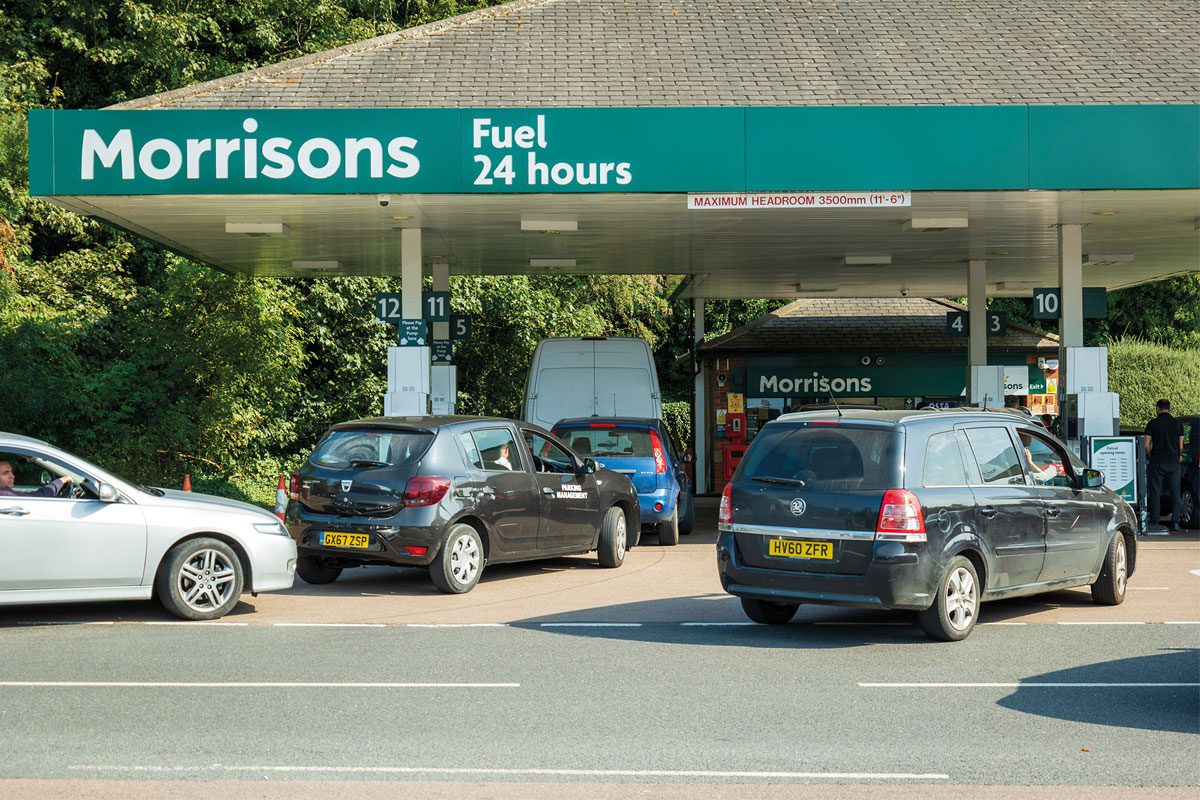PRA hits back as business secretary criticises filling stations

THE average cost of filling a tank of petrol hit £100 for the first time last month, as the UK government briefed against forecourt retailers.
As Scottish Grocer went to press, the Competition and Markets Authority was poised to publish its initial report on fuel duty pricing, as part of an investigation launched at the request of business secretary Kwasi Kwarteng.
Kwarteng fired his first serious shot at forecourt retailers on 17 May, when he wrote to trade associations, including the Petrol Retailers Association, to suggest that businesses had not been passing on the 5p per litre duty cut that was introduced on 23 March.
In his letter, Kwarteng said the public was “rightly frustrated” that a 5p duty cut “does not appear to have been passed through” in “any visible or meaningful way.”
He also claimed it was “unacceptable that different locations even within the same retail chain have widely different prices.”
“As a result of perceived intransigence to date – and on my instruction – my officials recently engaged the Competition and Markets Authority about this issue.
“As you would expect, the Authority has been closely monitoring the situation and will continue to do so. I have been reassured that they will not hesitate to use their powers to act against petrol stations if there is evidence that they are infringing competition or consumer law,” he said.
Responding to the business secretary, PRA executive director Gordon Balmer said the association agreed that the 5p fuel duty cut must be passed on, adding that PRA members had done so.
Balmer’s letter also included a further explanation of fuel pricing.
“We have offered to meet with the Secretary of State to ensure transparency, further explain fuel pricing and reiterate our view as to how the government can best alleviate the burden on struggling motorists,” he said.
The PRA’s offer to explain fuel pricing to the business secretary has not resulted in the association and the government seeing eye to eye.
Briefing against forecourt retailers has continued, moving Balmer to again issue a statement last month which slammed the government for what the PRA claims is a lack of understanding on fuel pricing.
He said: “The briefings provided by government spokespeople to the media indicate that ministers do not understand how fuel prices are set.
“We have contacted the secretary of state for BEIS on multiple occasions offering to meet and explain fuel pricing. However, we are yet to receive a response.
“By law, the 5ppl fuel duty cut has to be passed on – and it has been. Petrol retailers have been unfairly scapegoated for rises in the wholesale price of fuel over which they have no control.
“We welcome the Competition and Markets Authority investigation, as it will confirm not only that the 5ppl fuel duty cut has been passed on but that competition between forecourts remains vigorous and that our members are operating on razor thin margins.
“If the government wants to ease the burden of pump prices on motorists, they should cut fuel duty by a much more substantial margin, just as many other European countries have done.”
Balmer’s call to cut fuel duty has been echoed by groups representing motorists.
As the average cost of filling a 55-litre family car passed the £100 mark, RAC fuel spokesperson Simon Williams said: “March’s 5p fuel duty cut now looks paltry as wholesale petrol costs have already increased by five-times that amount since the Spring Statement.
“A further duty cut or a temporary reduction in VAT would go a long way towards helping drivers, especially those on lower incomes who have no choice other than to drive.
“It’s also important to remember that the Government is still benefitting from the high fuel prices by taking around 30p in VAT from every litre sold. This compares to just 25p before Russia invaded Ukraine.
“On top of this the government is still collecting 53p fuel duty from every litre.”





















